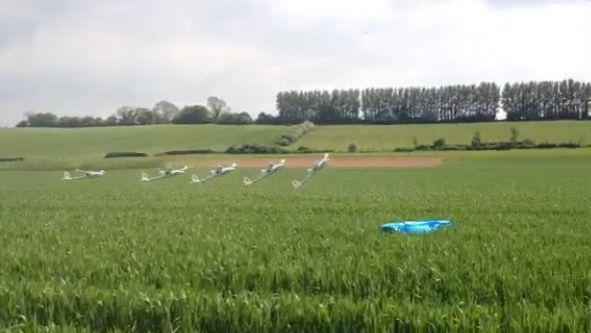Learning to land

The very first unmanned aerial vehicle (UAV) to perform a perched landing using machine learning algorithms has been developed in partnership with the University of Bristol and BMT Defence Services (BMT).
>
The revolutionary development of a fixed wing aircraft that can land in a small or confined space has the potential to significantly impact intelligence-gathering and the delivery of aid in a humanitarian disaster.
BMT, a subsidiary of BMT Group Ltd, and the University of Bristol have demonstrated how the combination of a morphing wing UAV and machine learning can be used to generate a trajectory to perform a perched landing on the ground. The UAV has been tested at altitude to validate the approach and the team are working towards a system that can perform a repeatable ground landing.
Current UAVs are somewhat restrictive in that they have fixed and rigid wings, which reduces the flexibility in how they can fly. The primary goal of the work was to look at extending the operation of current fixed wing UAVs by introducing morphing wing structures inspired by those found in birds. To control these complex wing structures, BMT utilised machine learning algorithms to learn a flight controller using inspiration from nature.
Simon Luck, head of information services and in
Dr Tom Richardson, senior lecturer in flight mechanics in the department of aerospace engineering at the University of Bristol, added: “The application of these new machine learning methods to nonlinear flight dynamics and control will allow us to create highly manoeuvrable and agile unmanned vehicles. I am really excited about the potential safety and operational performance benefits that these new methods offer.”
The 18-month research project was delivered as part of the Defence Science and Technology Laboratory’s (Dstl) Autonomous Systems Underpinning Research (ASUR) programme.













